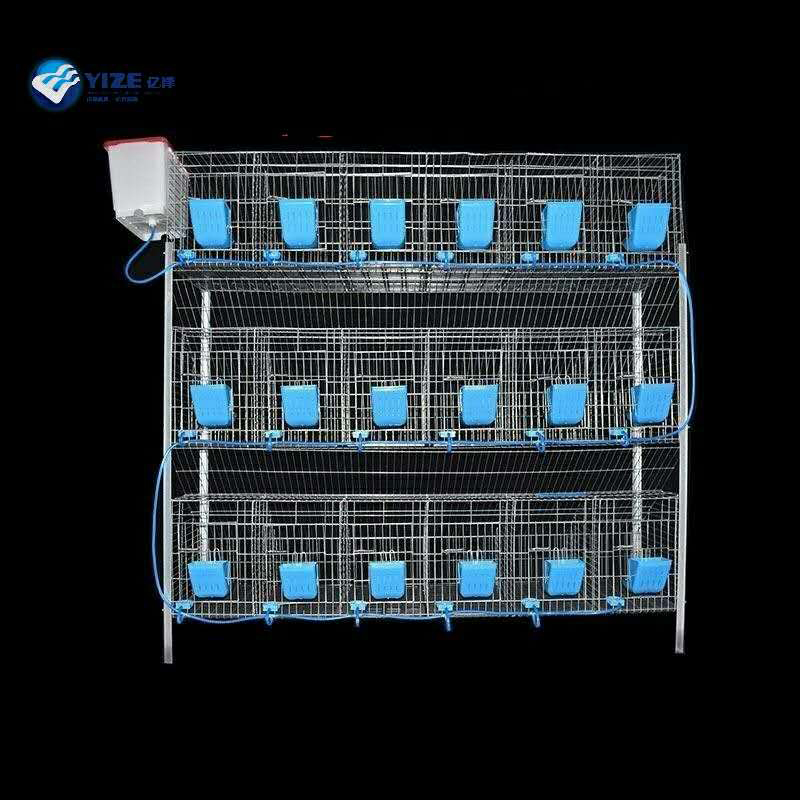livestock feed mixers
Dec . 01, 2024 19:45 Back to list
livestock feed mixers
The Importance of Livestock Feed Mixers in Modern Agriculture
In today’s rapidly evolving agricultural sector, the efficiency and effectiveness of livestock feed production play a crucial role in the success of farming operations. One of the key components that contribute to optimizing feed quality and production efficiency is the livestock feed mixer. These machines are vital for ensuring that livestock receive the right nutritional balance in their feed, which is essential for growth, health, and productivity.
Livestock feed mixers are designed to blend various ingredients uniformly, creating a consistent and homogenized feed mixture. This is critical because different livestock species have unique dietary requirements that vary based on age, weight, and productivity. For instance, dairy cattle, beef cattle, pigs, and poultry have specific nutrient needs that must be met for optimal performance. By mixing feeds accurately, farmers can ensure that their animals receive all the necessary vitamins, minerals, proteins, and carbohydrates, leading to improved health and better yield.
One significant advantage of using a livestock feed mixer is the enhanced efficiency in feed preparation. Traditional methods of feeding livestock often involve manual mixing, which can be time-consuming and labor-intensive. Feed mixers, on the other hand, automate this process, significantly reducing labor costs and time spent on feed preparation. Many modern mixers are equipped with advanced technology, allowing for precise measurements and adjustments of feed ingredients based on the specific nutritional requirements of the livestock.
Moreover, the uniformity of mixed feed helps in minimizing wastage. When feed is well mixed, animals consume it more readily and efficiently, reducing the likelihood of feed rejection. Additionally, consistent feed quality helps in preventing diseases that can arise from nutritional imbalances. For example, an uneven distribution of minerals and vitamins can lead to deficiencies or toxicities, harming the health of the livestock and impacting overall productivity.
livestock feed mixers

The scalability of livestock feed mixers also makes them an essential asset for farms of all sizes. Whether a small family farm or a large commercial operation, feed mixers can be tailored to meet varying production needs. Smaller mixers may cater to limited livestock numbers, while larger, more industrial models can handle vast quantities of feed, facilitating the operations of large-scale agribusinesses.
Furthermore, the ongoing advancements in technology have led to the development of smart feed mixers that incorporate software solutions for real-time tracking and management. These systems allow farmers to monitor feed quality and adjust formulations dynamically, enhancing the precision of their livestock nutrition strategies. The integration of data analytics enables farmers to make informed decisions, optimizing feed costs and improving overall farm profitability.
Sustainability is another critical factor where livestock feed mixers contribute significantly. By optimizing feed formulations and reducing waste, farmers can lower their environmental footprint. Efficient feed production directly correlates with reduced feed costs and improved resource management, aligning agricultural practices with sustainability goals.
In conclusion, livestock feed mixers are indispensable tools in the agricultural industry, providing significant benefits in terms of efficiency, feed quality, and livestock health. As the demand for animal products continues to rise globally, the role of these mixers in ensuring that livestock receive balanced and nutritious diets cannot be overstated. Investing in advanced livestock feed mixers is not only a practical decision for farmers but also a vital step towards sustainable and profitable farming practices.
-
Automatic Feeding Line System-Pan Feeder Nipple Drinker|Anping County Yize Metal Products Co., Ltd.
NewsJul.29,2025
-
Hot Sale 24 & 18 Door Rabbit Cages - Premium Breeding Solutions
NewsJul.25,2025
-
Automatic Feeding Line System Pan Feeder Nipple Drinker - Anping County Yize Metal Products Co., Ltd.
NewsJul.21,2025
-
Automatic Feeding Line System Pan Feeder Nipple Drinker - Anping County Yize Metal Products Co., Ltd.
NewsJul.21,2025
-
Automatic Feeding Line System - Anping Yize | Precision & Nipple
NewsJul.21,2025
-
Automatic Feeding Line System - Anping Yize | Precision & Nipple
NewsJul.21,2025






